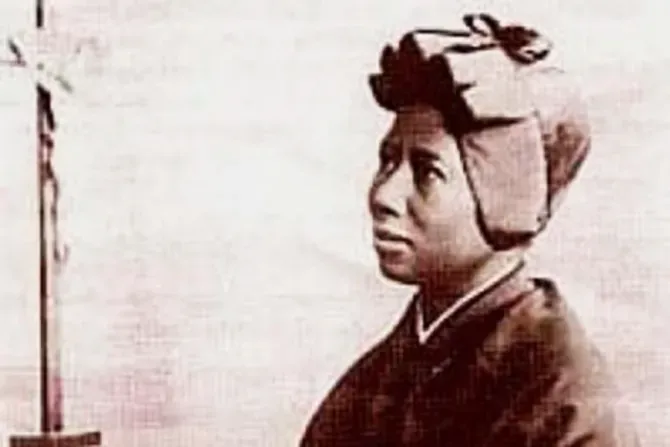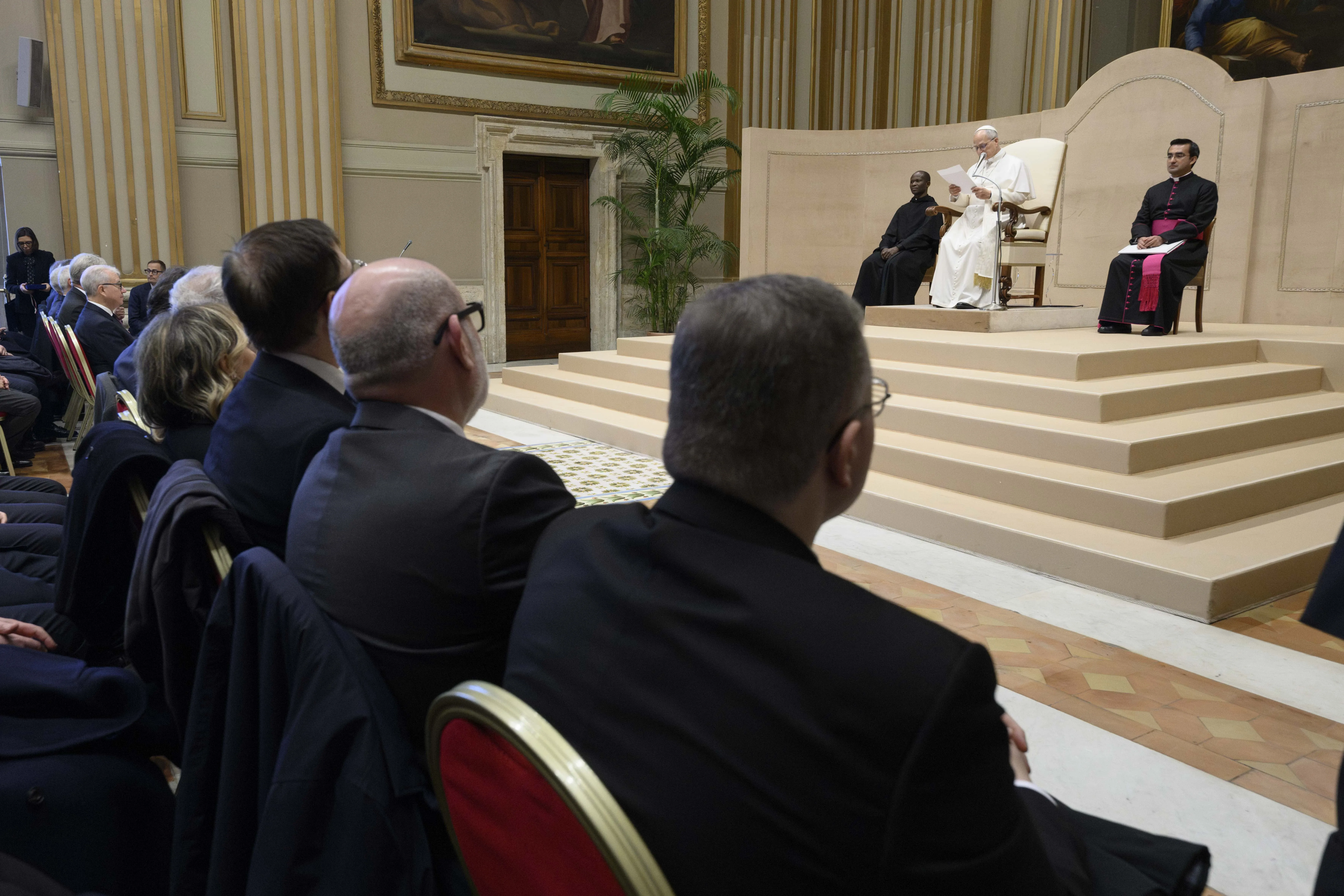Vatican City, 11 October, 2023 / 2:05 pm (ACI Africa).
Speaking in his first general audience since the start of the Synod on Synodality last week, Pope Francis on Wednesday resumed his ongoing catechesis on the theme of apostolic zeal, this time focusing on the story of the Sudanese-Italian saint Josephine Bakhita, which he described as “an existential parable of forgiveness.”
Born in 1869 in the region of Darfur, Josephine was sold into slavery as a young girl. She was traded between different owners and endured incredible hardship, being forcibly converted to Islam and was subjected to scarification, a process by which the skin is intentionally cut, or branded, to make a set pattern. Incidentally, her captors gave her the name Bakhita, which from the Arabic translates to “fortunata,” or fortunate.
In 1883 she was sold to Italian Vice Consul Callisto Legnani. In 1884, following the political instability that had engulfed Khartoum, they fled Sudan to Italy. She was subsequently passed to Augusto Michieli, a friend of Legnami. She first encountered Catholicism when she was entrusted to the care of Canossian Sisters in Venice.
While Micheli tried to force her back to Sudan with him, she refused. Her case went before the Italian court, which ultimately ruled that her slavery was null, given that Britain had outlawed slavery before she was sold and it was never legal in Italy. On Jan. 9, 1890, as a free woman, she converted to Catholicism, and nine years later, in 1896, made her final vows with the Canossian Sisters. Bakhita was canonized on Oct. 1, 2000, by Pope John Paul II and is the patron saint of Sudan and human trafficking survivors.
It was the sisters’ example of kindness and charity that so profoundly touched Bakhita, ultimately leading to her conversion, and was the catalyst for her religious vocation but also instilled in her the evangelical imperative of forgiveness.









